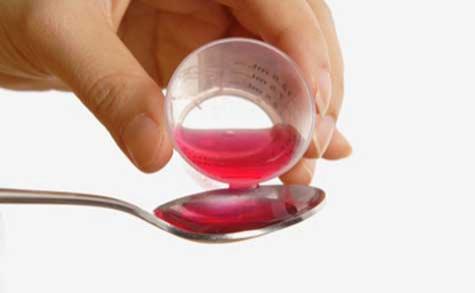The TGA review concluded that there are no immediate safety risks with these products.
However, there is evidence that they may cause harm to children. Furthermore, the benefits of using them in children have not been proven.
On this basis, the TGA says:
- Cough and cold medicines should not be given to children under 6 years of age.
- Cough and cold medicines should only be given to children aged 6 to 11 years on the advice of a doctor, pharmacist or nurse practitioner.
The labels of these products are being changed to reflect the new advice, but such changes take time to implement and must be phased in.
Stock with the new labelling will begin to appear in pharmacies and other retail stores from September 2012. However, existing stock with the older labelling will still be allowed to be sold for use in adults and children aged 6 years and older until it is exhausted.
The TGA says reasons for the above advice include:
- A baby or child may appear to have a cold but actually be suffering from a much more serious illness such as asthma, influenza, pneumonia, bronchitis, middle ear infection or another infection that requires early medical attention and treatment. Go to a doctor, or nurse practitioner if you have any concerns about the nature of your child's illness.
- Cough and cold medicines offer only temporary relief of common symptoms such as runny nose, cough, nasal congestion, fever and aches. They do not affect the severity of the viral infection or shorten the time the infection lasts.
- Overdose of these medicines can lead to serious harm.
-
Possible side effects include:
- allergic reactions
- increased or uneven heart rate
- slow and shallow breathing
- drowsiness or sleeplessness
- confusion or hallucinations
- convulsions
- nausea
- constipation
NPS MedicineWise Head of Programs, Ms Karen Kaye, says that the new advice reflects that the potential for harm from cough and cold medicines in young children outweighs the potential benefits.
“It can be distressing to have a child who has a cough, cold or flu but we have known for some time that there is little evidence for the effectiveness of cough and cold medicines,” says Ms Kaye.
“This is because few clinical trials have proven the effectiveness of cough and cold medicines, particularly in children, but some of the active ingredients in these medicines may cause serious side effects in children, for example seizures or fits.
There are a range of ways parents can help manage their child’s symptoms when they are unwell with a cough or cold.
“Parents often think that a medicine is required when their child has a cough or cold, but there are many simple remedies that can help to relieve their symptoms, including making sure your child gets plenty of rest, ensuring they drink plenty of water and avoiding exposing your child to cigarette smoke,” says Ms Kaye.
“You can supervise your child while they breathe in steam from a hot bath or shower in a closed room, a drink made with hot water, honey and lemon is a simple and effective home remedy, and for older children an ice cube or a throat lozenge can soothe a sore throat. If your child has a fever (a temperature higher than 38.5°C) and this is making your child uncomfortable or miserable, paracetamol can be given to help ease any discomfort.”
Ms Kaye adds that parents should speak to their doctor if they are worried or have further questions.
“If you have any concerns about your child’s health, if their symptoms get worse or if their symptoms don’t improve you should certainly speak to a health professional,” she says.
Before using any medicine, check with a doctor or pharmacist about the safest one for you or your child.
For further information visit: http://www.tga.gov.au/


















__small.png)










